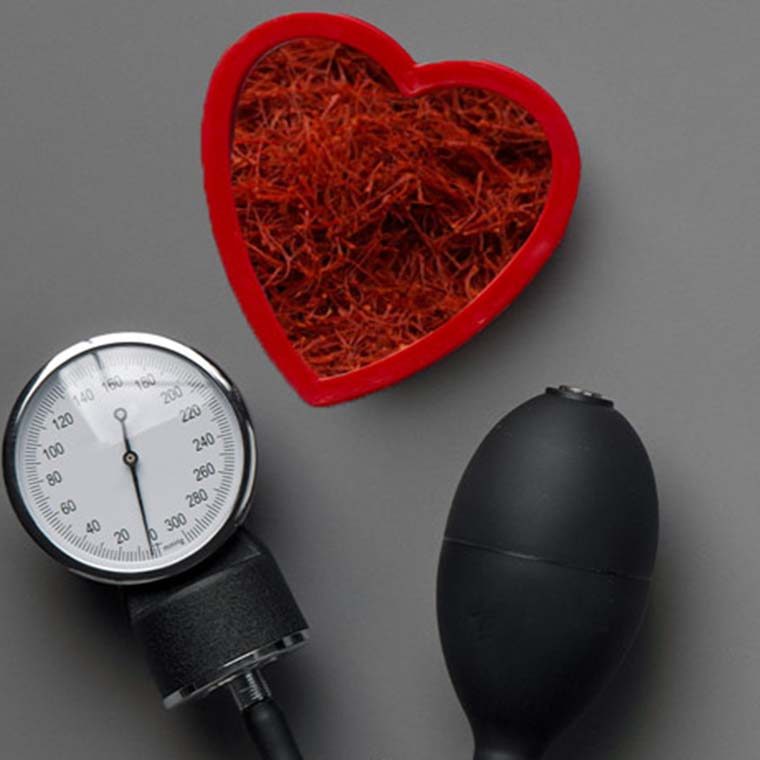Saffron Properties for Blood Pressure
Saffron, as a medicinal plant with unique characteristics, has positive effects on blood pressure. These effects result from saffron’s effective functioning in our bodies. With its warm and dry nature and high levels of antioxidants, saffron can positively impact the heart and blood vessels, leading to reduced blood pressure.
Saffron and Blood Pressure
Saffron directly affects blood pressure, and many individuals use it to manage their hypertension. In this article, we will examine the relationship between saffron and blood pressure. The positive effects of saffron manifest through its regular and balanced consumption, and excessive use may lead to adverse effects.
Therefore, to benefit from saffron’s properties in reducing blood pressure, it is advisable to consume this plant in a balanced and consistent manner.
Exploring Various Aspects of Saffron’s Properties on Blood Pressure
To better understand saffron’s properties in controlling blood pressure, we will explore this topic from different angles. Scientific studies and clinical experiences indicate that saffron’s impact on blood pressure is positive, and this has been scientifically proven.
1. Scientific Studies
First Study:
A clinical research study at Mashhad University of Medical Sciences investigated the effect of saffron on blood pressure in laboratory models. In this study, the blood pressure of laboratory rats was initially increased, and then the effects of various doses of crocin and safranal on blood pressure were examined. The results showed that saffron led to a decrease in mean arterial blood pressure (MABP) and heart rate.
Second Study:
In another study conducted on guinea pigs, it was found that saffron extract could reduce heart rate and contractile strength. These results indicate the strong inhibitory effects of saffron on calcium channels, with safranal having a significantly greater impact on blood pressure control than crocin.
2. Enhancing Cardiovascular Health
Saffron can help improve cardiovascular health and control blood pressure through two main mechanisms:
– Antioxidant Function:
Saffron contains high levels of antioxidants that can help improve heart muscle function and prevent atherosclerosis. Whenever heart health is ensured, blood pressure will also improve.
– Warm and Dry Nature of Saffron:
The warm and dry nature of saffron can increase the absorption of nutrients and medications into heart tissue. This leads to improved heart function and ultimately results in better blood pressure.
3. Reducing Vascular Resistance
Another mechanism by which saffron demonstrates its properties in reducing blood pressure is through its role in regulating vascular resistance. One of the crucial factors in blood pressure regulation is peripheral vascular resistance. Saffron can reduce peripheral vascular resistance through two main mechanisms:
– Antioxidants Present in Saffron:
These antioxidants prevent the oxidation of lipoproteins carrying fats in blood vessels, thereby preventing the deposition of these fats and avoiding blood pressure fluctuations caused by vascular issues.
– Relaxing Effects of Saffron:
Saffron naturally has relaxing effects on blood vessels. This effect may stem from opening potassium channels or blocking calcium channels, leading to a decrease in peripheral blood vessels due to increased nitric oxide in the blood vessels. Nitric oxide is the substance used in blood pressure control medications, and the most significant contributors to this effect in saffron are crocin, picrocrocin, and safranal.
Does Saffron Raise Blood Pressure?
The question of whether saffron can raise blood pressure may arise for many individuals. Contrary to some beliefs, saffron is recognized as a strong blood pressure regulator and is indeed used as an effective medication for reducing blood pressure. However, it should be emphasized that saffron cannot replace prescribed medications for blood pressure control. Care should also be taken regarding the amount of saffron consumed, as excessive intake of any substance may lead to side effects.
Conclusion
Due to its positive effects on cardiovascular health, saffron can help reduce blood pressure. To benefit from saffron’s properties, it should be consumed in a balanced and consistent manner to fully take advantage of its benefits. By considering these points, you can utilize saffron’s properties for blood pressure management.



